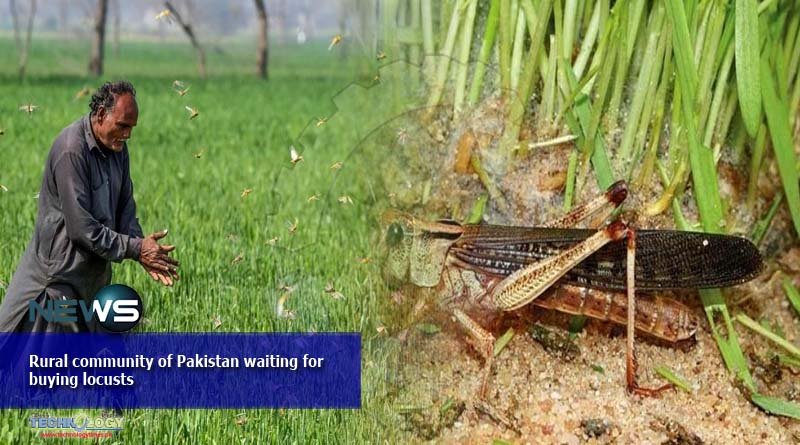The rural community of Depalpur, Okara, mostly poor peasants, is still waiting for the return of poultry meal producers to continue buying locusts for cash.
 Having 76% protein, the locusts offer a huge potential for making nutritionally rich and reasonably cheap animal meals. Locusts were a good omen for the poor rural community as each household earned thousands of rupees overnight during the community-based locust harvesting last month.
Having 76% protein, the locusts offer a huge potential for making nutritionally rich and reasonably cheap animal meals. Locusts were a good omen for the poor rural community as each household earned thousands of rupees overnight during the community-based locust harvesting last month.
Catching locusts is considered a challenge by many professionals but in fact it is the easiest thing to do once you know the locust behaviour. Adult locusts assemble in groups on trees, open ground and areas without any dense vegetation with sunset. They stay there almost movement-less till sunrise the next day.
Catching locusts was so easy that the rural community netted tonnes of locusts in a single night. After knowing the locust behaviour, the community was informed and motivated for easy catching.
During the three-day trial period, the community response was overwhelming as they collected over 20 tonnes of locusts, which were transported to the nearby poultry feed mills. This big locust catch has opened new ways of rethinking the locust management policy and plans.
A highly innovative and purely indigenous method of locust control involving the local community was tested in the Pepli Pahar Forest in Depalpur, Okara District, Punjab where huge swarms of adult locusts were reported in mid-February 2020. A team of experts including entomologists and those from agricultural, natural resources, nutritional and revenue fields was constituted before initiating field work. The idea was to catch the locusts in return for money and the slogan of “Catch locust, earn money and save crop” was chanted during the community mobilisation drive. A price of Rs20 per kg was fixed for the locusts.
Courtesy: Referral link
